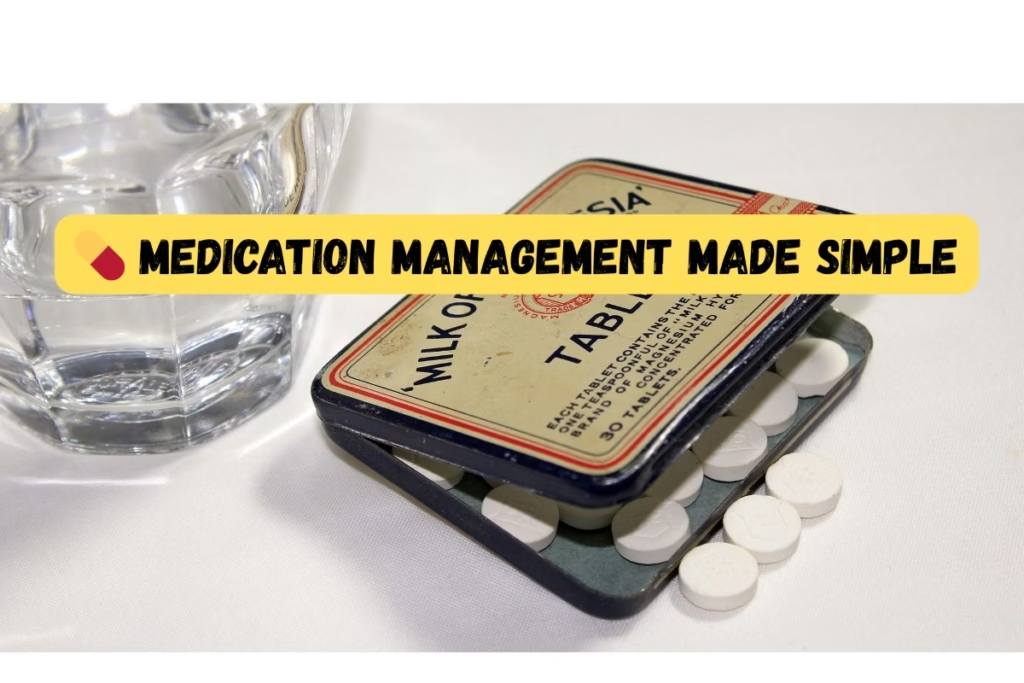Scammers often target one of the most vulnerable groups in our society â the elderly. Increasing awareness of health scams is crucial, particularly for those responsible for the well-being of aging parents. What measures can we take to ensure that our loved ones are protected from these deceptive practices that threaten their health and financial stability?
1. Tackling the Challenge of Health Scams
Understanding the Extent of Health Scams
Many older adults find themselves targeted by fraudulent health schemes, a troubling reality that can have devastating financial and emotional consequences. Health scams often promise miraculous cures, rapid weight loss, or painless solutions to chronic health issues. These scams may appear as emails, phone calls, or even direct mailings, presenting offers that seem too good to be true, yet are highly alluring.
The impact of these health-related scams on the elderly can be particularly severe. Not only is there a risk of losing significant amounts of money, but there is also the potential for physical harm if the elderly cease their prescribed treatments in favor of scam products. Trust breaches can also lead to feelings of shame and decreased willingness to share important health decisions with loved ones.
Identifying Health Scams Aimed at Aging Parents
Identifying health scams in aging parents can be challenging, but it is crucial for their protection. Clues can include a sudden change in spending habits, secretive behavior about personal health matters, or an accumulation of unproven health products. Scammers often target one of the most vulnerable groups in our society â the elderly. Increasing awareness of health scams is crucial, especially.
Pay attention to offers that claim to provide exclusive deals or insist on immediate action. Scammers often create a sense of urgency to prompt a hasty response. Unfamiliar charges on bank statements can also be a telltale sign.
How to Confront Health Scams Together
If you suspect that your elderly parent is involved in a health scam, it’s essential to approach the issue with sensitivity. Begin by expressing concern for their health and well-being, rather than accusations. Gather information about the product or treatment in question, and review it together with credible sources or a healthcare professional.
Advocate for your loved ones by reporting suspected health scams to the authorities, including the Federal Trade Commission (FTC) or the local police. Encourage your parents to speak up if they receive suspicious offers and to consult with you or a healthcare provider before committing to new health-related expenditures.
In conclusion, by staying vigilant and informed, we can shield our elderly parents from the financial loss and health risks associated with these deceptive practices. Open communication and education about such scams can empower older adults and their families to more effectively deflect these fraudulent encounters.
2. Common Types of Health Scams
Navigating the healthcare landscape can be challenging, particularly when it comes to identifying health scams targeting aging parents. With a myriad of products and services advertised daily, it’s vital to be vigilant and informed about the potential dangers. Let’s explore some common types of health scams that target older individuals and how they can best be avoided.
Phony Prescription Drugs and The Risks They Pose
One of the most dangerous health scams involves phony prescription drugs. These may be sold online or through unauthorized retailers, often at prices that seem too good to be true. They may claim to be generic versions of legitimate medications or may be marketed as completely new remedies. The risks inherent in these fake medications cannot be overstated— they may contain harmful substances, incorrect active ingredients, or improper dosages, leading to adverse health effects or a lack of proper treatment for existing conditions.
To protect against these risks, ensure that any prescription drugs are purchased from a legitimate pharmacy, ideally one that you are familiar with. Additionally, consult with a healthcare professional before trying new medications, and always verify that the source is credible.
Dangers of Fake Anti-Aging Products
Fake anti-aging products are another type of health scam that often targets the elderly. These products may be marketed with claims of miraculous results, but they usually do not undergo the rigorous testing required for legitimate treatments. The use of these unverified products can lead to skin irritations, allergic reactions, or other health issues. Moreover, they can also result in unnecessary financial loss while providing no real benefit.
It’s essential to approach anti-aging products with skepticism and conduct thorough research before making any purchases. Checking for reviews, consulting with a dermatologist, and purchasing from reputable sources are steps that can help avoid falling victim to these types of scams.
Recognizing Fraudulent Health Insurance Schemes
Fraudulent health insurance schemes are particularly insidious as they prey on concerns around medical coverage and expenses. These scams can take the form of unsolicited calls or emails offering discounted health plans, fake insurance policies, or claiming to be from legitimate governmental health agencies. The goal of these scammers is often to collect personal information or financial details.
Confirming the legitimacy of any insurance offer before engaging and not divulging personal information over the phone or via email to unidentified representatives is crucial. Instead, reach out directly to known insurance providers through official channels for any policy discussions or inquiries.
Remaining vigilant and educated on potential healthcare fraud is paramount. By familiarizing yourself with the characteristics of these scams, you can better protect yourself and your loved ones from their harmful effects. It’s crucial for families and caregivers to discuss these risks and to be proactive in ensuring that their elderly relatives are not taken advantage of by these unscrupulous entities.
3. Educating Aging Parents about Health Scams
Conversations on Health Scam Awareness
Initiating a discussion with aging parents about the prevalence of health scams can be a vital step in protecting their well-being. It’s essential to approach the topic with sensitivity, emphasizing that you are acting from a place of care and concern. Share stories or examples of common scams that you’ve heard about to make the conversation more relatable.
Ensure that your parents feel comfortable asking questions and express that it’s okay to be skeptical about unsolicited health advice or offers, especially those that promise quick fixes or miracle cures. Please encourage them to discuss any new health products, treatments, or services with you or a healthcare professional before engaging with them.
Providing Resources for Identifying Health Scams
- Direct your parents to reputable sources such as the Federal Trade Commission (FTC) or the Food and Drug Administration (FDA) for information on health product alerts and scams.
- Introduce them to educational material that outlines red flags for suspicious health offers, like requests for personal information or money up front.
- Discuss the importance of verifying the credentials of any healthcare provider or company before making health-related decisions.
Setting Up Protective Measures
Another crucial step is to help your parents set up protective measures against potential scams. This can include adding their phone numbers to a Do Not Call registry to reduce telemarketing calls or using call-blocking features to prevent scammers from reaching them.
Advise them to keep personal information, such as their Medicare ID or Social Security number, private and to be wary of anyone asking for this information over the phone or via email. Remind your parents that genuine health professionals will not ask for sensitive details in such an informal manner. For online safety, ensure they have up-to-date antivirus software and teach them about the dangers of clicking on links from unknown sources.
In conclusion, by staying informed, being vigilant, and identifying health scams in aging parents, you can help ensure that your loved ones remain protected from health scams that prey on unsuspecting individuals. Open communication, education, and preventive strategies will serve as their armor in the fight against these fraudulent activities.
4. Strengthening Defense Against Health Scams
The Role of Trusted Healthcare Providers in Prevention
To shield elderly individuals from health scams, trusted healthcare providers play a pivotal role. These professionals can be instrumental in educating patients about potential scams and what sorts of offers or claims should be viewed with skepticism. For instance, any treatment or medication that is touted as a quick fix or a miracle cure should be immediately treated as suspect. Healthcare providers can also advise older adults to be wary of unsolicited health advice or offers, especially those that come via phone calls, emails, or door-to-door solicitors.
Tips for Monitoring Suspicious Activities
- Ensuring regular communication with elderly parents helps keep track of any unusual transactions or decisions they may have been influenced to make.
- It’s essential to review financial statements and medical bills for unrecognized charges, which could be signs of fraudulent activity.
- Encourage elderly loved ones to never share personal information, such as Medicare ID or Social Security numbers, without verifying the legitimacy of the request.
- Staying informed about common scams and discussing them with aging parents can help recognize red flags and avoid deceitful schemes.
Using Technology to Safeguard Against Health Scams
Technology can be a formidable ally in the fight against health scams. There are apps and services designed to filter out unwanted calls or emails, reducing the risk of scammers reaching vulnerable seniors. Also, utilizing online resources that track and report scams can keep one step ahead of scammers’ tactics. Some financial institutions offer alert services for suspicious activities on accounts, which can be a valuable tool for children monitoring their elderly parents’ finances.
To protect elderly parents, it is paramount to be vigilant and proactive. By identifying health scams in aging parents, you can help shield them from the emotional and financial repercussions that these fraudulent activities may cause. Using a combination of personal vigilance, support from healthcare professionals, and the strategic use of technology, it’s possible to provide a robust defense against health scams targeted at older adults.
5. Legal and Support Frameworks
When an elderly individual falls victim to a health scam, it’s crucial to know the steps for Reporting Health Scams and Seeking Justice. It’s imperative to act quickly when such an unfortunate situation occurs. The first step is to report the incident to local law enforcement and to inform agencies specialized in dealing with fraud, such as the Federal Trade Commission (FTC) through their Consumer Information page, or the Better Business Bureau (BBB).
Furthermore, contacting one’s state’s attorney general can provide additional support in pursuing justice. Seniors and their caregivers should keep detailed records of all communications related to the scam, including any phone numbers, email addresses, or website URLs that were involved. This detailed documentation is invaluable for investigations and legal proceedings.
In addition to legal channels, there are abundant support networks offering assistance to victims. Organizations like the National Center on Elder Abuse (NCEA) and the AARP offer resources and guidance for those affected by health scams. These support networks can provide emotional assistance, as well as advice on how to navigate the aftermath of being scammed.
For seniors and their families, identifying health scams in aging parents is often only the first step. Once identified, these support groups can also help educate and prevent further incidents from occurring. Victims need to know they’re not alone and that help is available to assist them in recovering from the fraudulent activities they’ve experienced.
To summarize, taking immediate action and utilizing available legal and support resources are crucial when addressing health scams targeting the elderly. Staying vigilant and well-informed is a proactive measure to protect the vulnerable in our communities. Empowering seniors and their families with this knowledge can make a significant impact in the fight against health scams.
Essential Reminder: While it may be difficult to comprehend why scammers would target our aging parents, understanding and preventive action are our best defenses. It is imperative to remain vigilant and provide our parents with the knowledge and tools they need to identify health scams before they fall victim to them. Indeed, awareness is the cornerstone of safety in our continuously evolving digital world.


